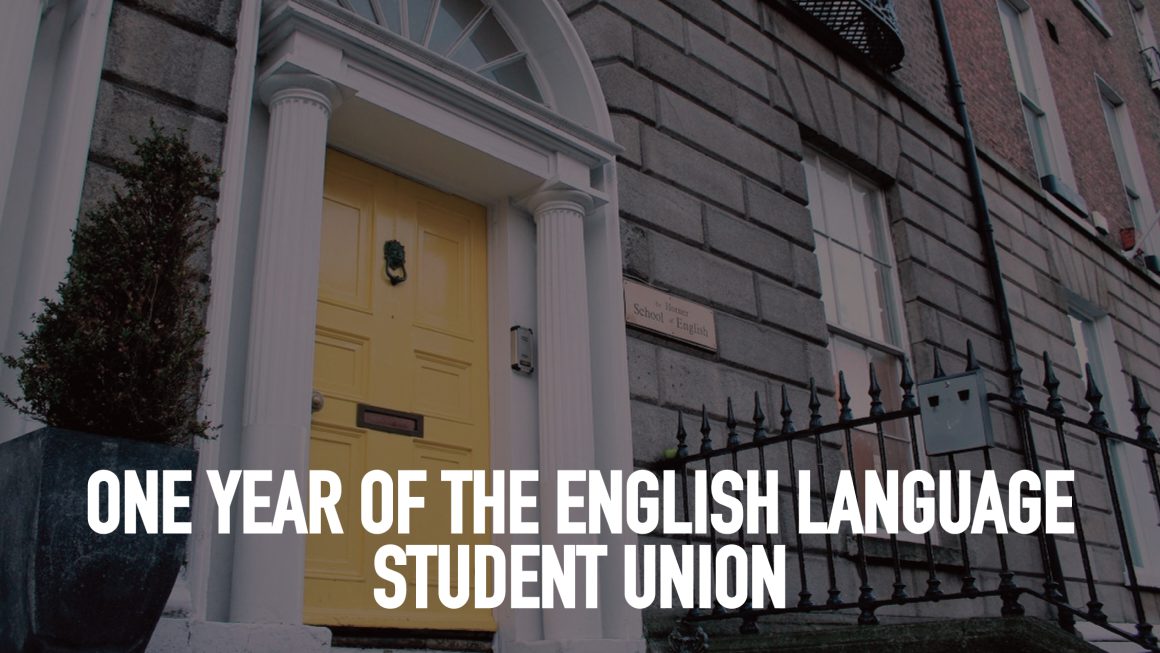It’s been a year now since the establishment of the English Language Students’ Union (ELSU Ireland). The Covid-19 pandemic triggered a major crisis in the English Language Education (ELE) school sector. Identifying the vulnerable situations many international English-language students found themselves in, Fiachra Ó Luain, an English-language teacher based in Dublin, set about petitioning English language students about their experiences. This process set about the beginnings of the establishment of ELSU.
The decision to form a union was motivated in part at least, by recent changes made to the enrolment criteria that made online classes mandatory from May, despite no proper research and development being done nor oversight of the quality of these classes. The rule changes meant that many students had to give up proper full-time frontline jobs they had been doing since the start of the pandemic, when they were allowed work 40 hours in the immediate aftermath of the first lockdown, and look for unregulated alternatives, such as delivery work.
As the pandemic wreaked havoc throughout Irish society, thousands of international students who’d arrived in Ireland last March and February, found themselves stranded – and their requests for refunds from their schools were, in almost all cases, refused.
ELSU campaigning for legislative change
Through what has been described by ELSU members as a consensus decision-making process, the ELSU has been campaigning to achieve legislative change to improve the conditions of its membership and the wider English language student community in Ireland. ELSU are engaged in a process of lobbying the government to ensure that international English language students would have an extension of their visa work permit-rights from 20 hours a week to 40 hours a week again, until the pandemic ends. The position of the ELSU is that should their students have the right to work that amount then they shall be more secure from exploitation in general. Online classes that are in a research and development “beta” version phase, should be subsidised, made free at the point of delivery, and attendance criteria should suit the schedules of frontline workers, instead of demanding frontline workers give up their jobs only to attend sub-standard online classes that they are not happy with. If a student drops below 85% attendance they can be threatened with deportation by their schools or INIS. “The State has broken its contract with these people” is what ELSU said to Tánaiste and Minister for Jobs, Leo Varadkar in an online meeting on 9 March.
To explain this further: many international language students work as delivery riders. Many are economically coerced into sub-contract work, where they rent out a delivery account from an Irish, European or Stamp 4 visa holder and pay a high weekly “rent” for the “privilege” of working. Should international students have the right to work up to 40 hours a week that will minimise the risk of hyper-exploitation in the black economy.
It is the view of the Socialist Party that international students should be able to work and expect a living wage. There is some debate within the delivery rider community on whether they should maintain self-employment status or should be employees of Deliveroo and other delivery companies. Whatever the employment status of delivery riders, they should receive a living-wage. It is the view of the Socialist Party that those studying English who need a flexible work arrangements because of study or other commitments would be best positioned working in a direct employment basis. Operating on a direct employment basis with an agreed rota would minimise various risks faced by the workforce and would help ensure the full rights of workers are upheld and maintained.
If ELSU and delivery riders are successful in ensuring right-to-work up to 40 hours a week and the right for Stamp Two visa holders to own their own delivery accounts, it is also important to galvanise that momentum and struggle for a living wage be extended to all workers. SIPTU, who have recently started welcoming delivery riders as members, should seriously put the pressure on the government and Deliveroo now.
Strides forward for ELSU
Every Wednesday the ELSU convene a meeting of their membership. A Socialist Party member observed the last meeting held by the ELSU. The first week of April saw 36 people attending, 32 attendees were international students. It should be noted that at various points throughout the meeting attendees spoke in Portuguese, which indicates how organically ELSU has attracted international students. Ideas were democratically discussed and ironed-out, and many of the attendees committed to participate in the meeting that SIPTU organised on 7 April for delivery riders. The second week of April saw an increased attendance with over 40 students logged on. ELSU has recently voted on an impressive new constitution and new committee for 2021-2022.
The establishment and growth of ELSU indicates a step forward in the organising of both international English students and delivery riders. The work of the ELSU should be watched and supported by socialists in Ireland. All indications point to ELSU as a platform to help international students organise collectively and improve their conditions in Ireland. Any victories for ELSU membership would give confidence to its membership to struggle for improved conditions in other aspects of their lives, from the workplace to struggling against racial oppression they experience. As is always the case, a victory for one section of the working-class is a boost and a victory for the working-class in its entirety!












